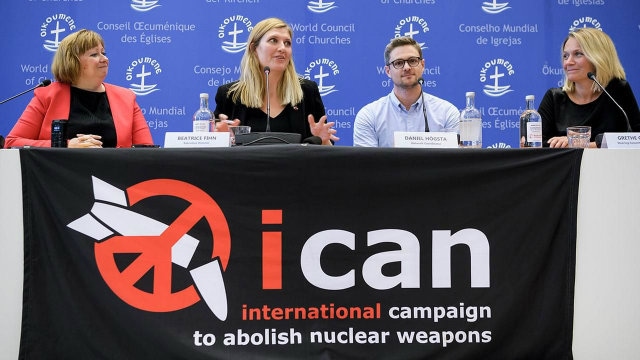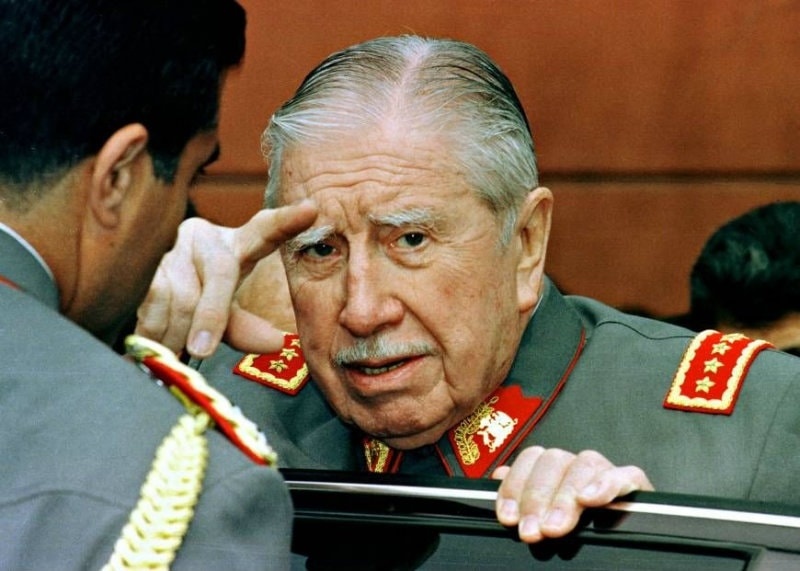
STOCKHOLM – The International Campaign to Abolish Nuclear Weapons (ICAN) has been awarded the Nobel Prize for Peace. ICAN describes itself as a coalition of grassroots non-government groups in more than 100 nations. It originated in Australia and was then launched internationally in Vienna in 2007.
Geneva-based organization ICAN “has been a driving force in prevailing upon the world’s nations to pledge to cooperate … in efforts to stigmatize, prohibit and eliminate nuclear weapons,” Nobel committee chairwoman Berit Reiss-Andersen said in the announcement.
Three U.S. scientists win Nobel Prize in Medicine for work on body’s daily rhythms
She noted that similar prohibitions have been reached on chemical and biological weapons, land mines and cluster munitions, but despite being “even more destructive” nuclear weapons have avoided a similar international ban.

“The organization is receiving the award for its work to draw attention to the catastrophic humanitarian consequences of any use of nuclear weapons, and for its ground-breaking efforts to achieve a treaty-based prohibition on such weapons,” Ms Reiss-Anderson said.
Beatrice Fihn, executive director of the ICAN, told reporters “it sends a message to all nuclear-armed states and all states that continue to rely on nuclear weapons for security that it is unacceptable behavior”.
“We can’t threaten to indiscriminately slaughter hundreds of thousands of civilians in the name of security. That’s not how you build security,” she said.

“We are trying to send very strong signals to all states with nuclear arms, nuclear-armed states — North Korea, US, Russia, China, France, UK, Israel, all of them, India, Pakistan — it is unacceptable to threaten to kill civilians.”
Japanese born British novelist Ishiguro wins the Nobel Literature Prize
In Japan, the only country to suffer an atomic bombing in the closing days of World War II, this year’s Nobel Peace Prize resonated with many.
ICAN founder Tilman Ruff paid tribute to nuclear victims when talking about the “humbling” win. “There are a lot of people around the world who’ve made this happen,” he told The World.
“Particularly I think of the nuclear victims, the test survivors, the people who have provided painful testimony that has helped to really inform and make real humanitarian motivation underpinning this treaty.”
ICAN Asia-Pacific director Tim Wright said it was a “huge honor” to be awarded the prize for a program that was launched in Melbourne 10 years ago. “In a sense, it’s the first Australian Nobel Peace Prize that’s ever been awarded”.



